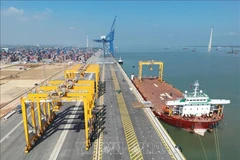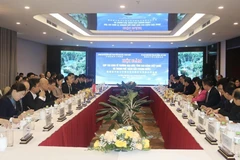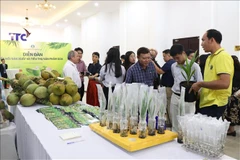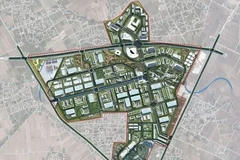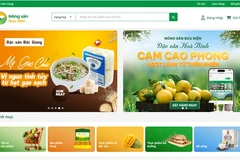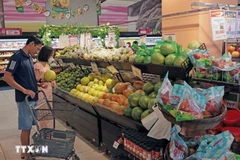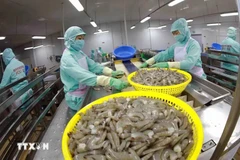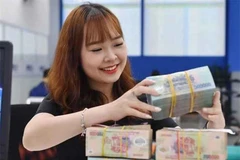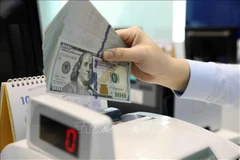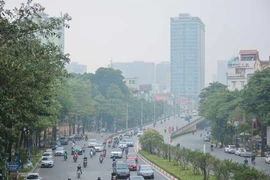Thanks to coordination between importer LNS International Corporation and the distributor L&V Food Supply Company in Houston, Texas, fresh lychee grown in the northern province of Bac Giang – dubbed Vietnam’s kingdom of the fruit, has been available on the shelves of many supermarkets and the largest Asian market in Houston.
Chinh Nguyen, CEO of L&V Food Supply, said her group and LNS International Corporation are working on a plan to import big shipments of Vietnamese food and fruits to the US this year.
"After three shipments of fresh lychees (approximately 9 tonnes) to the US in June, we plan to import frozen lychee (about 2 containers per month, equivalent to about 30 tonnes)," she said.
"If Vietnamese suppliers can ensure enough standard products, we will import an additional three shipments (80-90 tonnes) this year.”
The success demonstrates the efforts by Vietnamese ministries and agencies, including the Ministry of Industry and Trade, in trade promotion to deliver Vietnamese agricultural products to demanding markets such as the US and the European Union.
 Vietnamese agricultural products and lychee still encounter obstacles in accessing the market due to the far geographical distance, and high irradiation and transportation costs.(Photo: nhandan.com)
Vietnamese agricultural products and lychee still encounter obstacles in accessing the market due to the far geographical distance, and high irradiation and transportation costs.(Photo: nhandan.com) The US Department of Agriculture forecast that the US will import up to 199 billion USD worth of agricultural products this year, 5 billion USD higher than last year’s figure, which offers an opportunity for Vietnamese agro-forestry-fishery exports.
Last year, the US’s fruit-vegetable import reached a record high of over 31 billion USD, including 19.3 billion USD of fresh and frozen fruits, an increase of 10% compared to 2021. The majority of these imports came from Canada, Mexico, and some countries in Central and South America.
Apart from Vietnam, the US also imported lychee from China, India and Thailand. Vietnam’s Bac Giang lychee has been favoured by local consumers for its quality.
Vietnamese Trade Counsellor in the US Do Ngoc Hung pointed out that there is ample room for Vietnamese fruits in the US market.
However, Vietnamese agricultural products and lychee still encounter obstacles in accessing the market due to the far geographical distance, and high irradiation and transportation costs.
The Vietnamese trade office in Houston suggested relevant associations and businesses of Vietnam and the US exchange information and work together to support export-import activities.
In particular, businesses should make long-term commitments to ensuring good coordination among exporters, importers, and distributors for large shipments, exchange market information and share responsibility and risks with partners, thus creating a healthy competitive environment, Hung said.
He also suggested intensifying product promotion to introduce Vietnamese fruits to other communities in the US apart from Asian consumers./.





